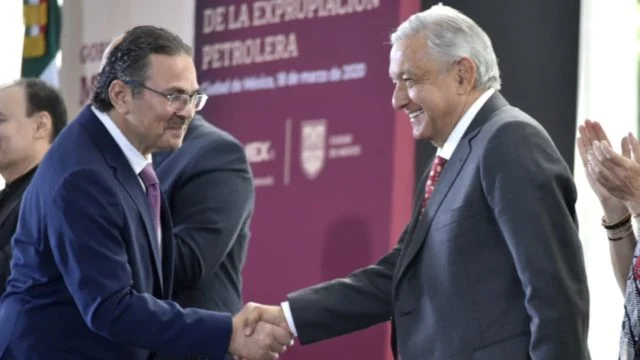Mexico Has Doubled Gasoline Production Under AMLO
- Admin

- Jan 13, 2024
- 2 min read
Updated: Apr 24, 2024
Pemex produced 300,000 barrels of gasoline a month in 2018. In 2023 it closed with an average of 655,000 per month. This puts Mexico on the path of fuel self-reliance perhaps even by 2025. For that to happen the production would need to double again and go above 1,300,000 barrels per month. AMLO has allocated at least $33 billion worth of investments into Pemex to shore up the beleaguered and most heavily indebted (17% reduction in 2023) oil producer in the world.
Petróleos Mexicanos ("Pemex") recently disclosed a notable surge in gasoline production, an achievement attributed to the policies of President Andrés Manuel López Obrador ("AMLO"). Despite the reported growth, investors, wary of AMLO's approach, remain cautious about the potential implications for Pemex and the broader energy landscape in Mexico.
Under the current administration, Pemex claims to have doubled gasoline production from 300,000 barrels per day in November 2018 to 655,000 barrels per day in 2023. AMLO's ambitious promise of achieving self-sufficiency in gasoline production by 2025 is met with skepticism. Oropeza, Pemex's Director, envisions surpassing 1,300,000 barrels per day, eliminating the need for foreign gasoline imports.
Pemex attributes its production boost to a substantial investment of 574,000 million pesos by the López Obrador government. While this includes refinery rehabilitation and strategic acquisitions, investors remain watchful, as the state's involvement in Pemex has been a subject of concern regarding fair competition, mismanagement, and other market dynamics.
While Pemex remains one of the most indebted oil companies globally, Oropeza highlighted a 17.4% reduction in debt during AMLO's administration. The proposed shift in revenue dynamics, where domestic sales are expected to account for 83.3% of Pemex's revenues, raises questions about the long-term sustainability and potential market distortions.
Pemex's achievements in gasoline production present a complex narrative for investors. On one hand, they value the impressive energy production advances which are required for nearshoring to continue and not stall. On the other hand, they should be concerned about the sustainability of these advancements given the high degree of capital and debt required to make it happen and the long history of Pemex's substandard energy management practices.


























